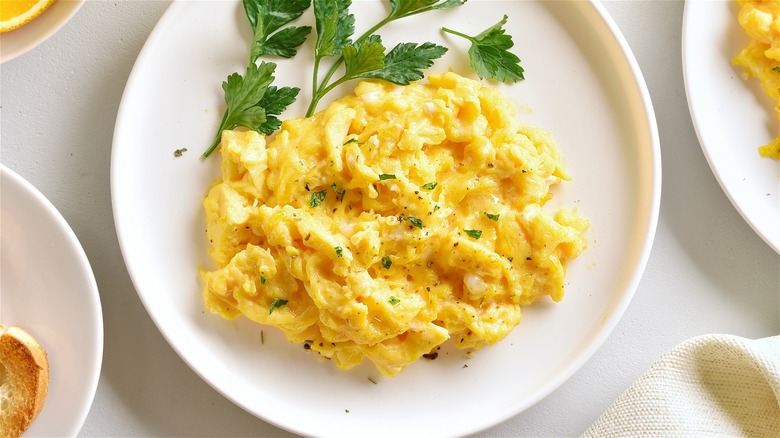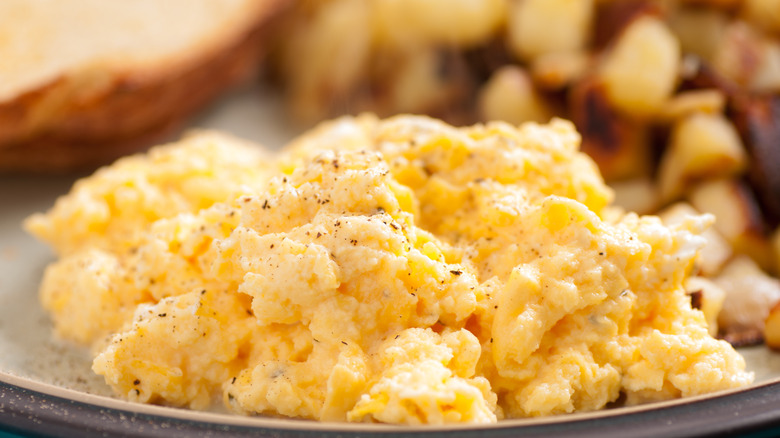The Cooking Method That Gives Scrambled Eggs An Extra Creamy Texture
If you get scrambled eggs right, they can blow all other breakfasts out of the water. Soft, silky, and rich, scrambles epitomize all of the best parts of egg-craft on their own but are also able to accompany any other morning comfort foods. Similarly to potato mashers, egg scramblers must decide if they want to focus on achieving creaminess or fluffiness in their end product. Flirtations with fluff will come at a cost — fluffiness usually comes from heat making air bubbles expand, but the heat will also dry out eggs.
For extremely creamy scrambled eggs, begin cooking them in a cold pan, placed over low heat, stirring often. As chef and YouTuber Bruno Albouze explained to TODAY, "There's no question that the most important factor when cooking eggs is the cooking technique itself. In the case of scrambled eggs, that means using gentle heat and taking the eggs off the flame a little early to account for carryover cooking."
If cold-pan eggs are still not creamy enough for you, then it's probably because the eggs are in direct contact with the heat of the pan. For a gentler method that gives even creamier results, use indirect heat via a bain-marie — cooking eggs in a bowl perched atop a pan of simmering water — or with a sealed bag placed into a water bath.
The science of the gentle approach to creamy eggs
Eggs are mostly water, combined with some protein in the whites, and some fats and emulsifiers in the yolks. According to J. Kenji López-Alt, when eggs are scrambled, their proteins link up to form a lattice that still leaves plenty of space for water (via The New York Times). However, the higher the heat, the tighter the proteins twist into and around each other, forcing the moisture out — similar to squeezing a sponge.
So, if we want creamy eggs, we need to avoid overheating. Beginning in a cold pan removes any initial sizzle that might sabotage your soft scramble, but using indirect heat is an extra insurance against overcooking. A bain-marie is heated by the steam of the boiling water below, which limits the temperature to around 212 degrees F, however, this is still hot enough that they will need constant mixing, as Egg Shop Chef Nick Korbee explained to Esquire — "[i]f you let them sit, they'll just coagulate and be one mass of eggs."
As Michelin-starred Chef Heston Blumenthal explained, the gentle heat of a bain-marie will take about 15 minutes to cook the eggs (via YouTube). If you don't want to stand and stir for a quarter of an hour, his water bath method places all ingredients in a bag which is left in a 167-degree water bath for 16-17 minutes. The gentler heat means it only needs stirring by giving the bag a massage every five minutes.

